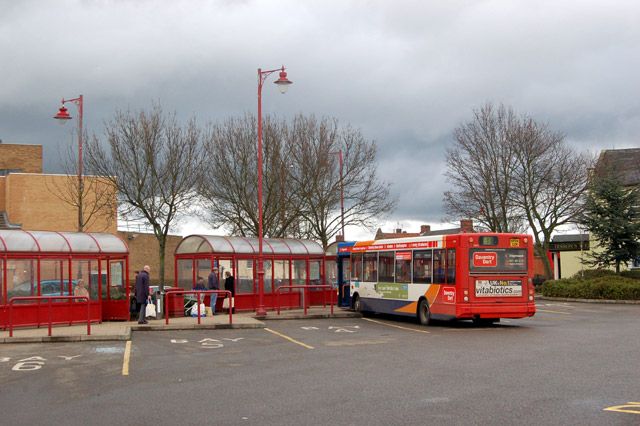Bus Back Better
With few exceptions, bus services outside London have never recovered from the precipitous drop in usage that followed deregulation in 1986. In West Northamptonshire the reality of piecemeal routes, precarious funding and unreliable timetables. Peter Doveston does not believe councils are to blame.

With few exceptions, bus services outside London have never recovered from the precipitous drop in usage that followed their deregulation in 1986.Here in West Northamptonshire we have come to accept the reality of piecemeal routes, precarious funding and unreliable timetables. However, in an admittedly rare defence of the council on his part, Peter Doveston does not believe they are to blame.
A national bus strategy was released in March 2021 optimistically titled Bus Back Better which forthrightly calls upon councils to put together ambitious plans for bus improvements in their areas. In fairness, West Northamptonshire gave it a good shot. Their Bus Service Improvement Plan (BSIP) contains some good ideas including the recommendation for capped fares on the widely used Buzz card so that it could act in a similar fashion to the Oyster Card in London.
I would like to have seen the inclusion of ticket purchasing machines in bus stations and other central locations to streamline passenger entry onto services. It would also be good to produce a Northampton town bus map akin to the London Tube or the services you see in Nottingham, along with the creation of bus stop names so that they are more navigable by visitors. And, possibly, even the introduction of screens on buses that indicate which stop is coming up next.
The council has to tread a narrow path. They have to consider the maintenance of rural services into this bargain. These are notoriously hard to fund consistently and CA–WN readers who travel on the 200 and 500 from Daventry and Brackley will understand this all too well! In an ideal world West Northamptonshire would have its own municipal bus service similar to that in Reading but this would require a sizeable investment from central government to get it off the ground. The reality is that the council have to negotiate an enhanced partnership with Stagecoach, a privately run company who, unsurprisingly, have shareholders in mind.
Sadly, the council was unsuccessful in obtaining funding through Bus Back Better but it was not alone. The Campaign for Better Transport reported that ‘While all local transport authorities applied, only two in five received some funding and even these received less than a quarter of what they asked for’. Northamptonshire was, however, listed as one of the ‘frequent losers’ when it came to obtaining funding for bus services.
The bus situation is an example of how economics will play a pivotal role in a green future. Bus services that function properly reduce emissions, reduce the need for personal car manufacture and provide equitable transport for all members of society. These social factors are often hard to reconcile with private concerns and this point is central to the green debate.
What can CA-WN readers do? This is an issue for central government, so write to your local MP and ask why West Northamptonshire keeps missing out on funding for its bus services. There are also a number of good public transport campaign groups that are worth signing up to including The Campaign for Better Transport.
Such campaigns are not hopeless endeavours, take a look at the recent DfT £2 fare cap announcement for buses in England!
